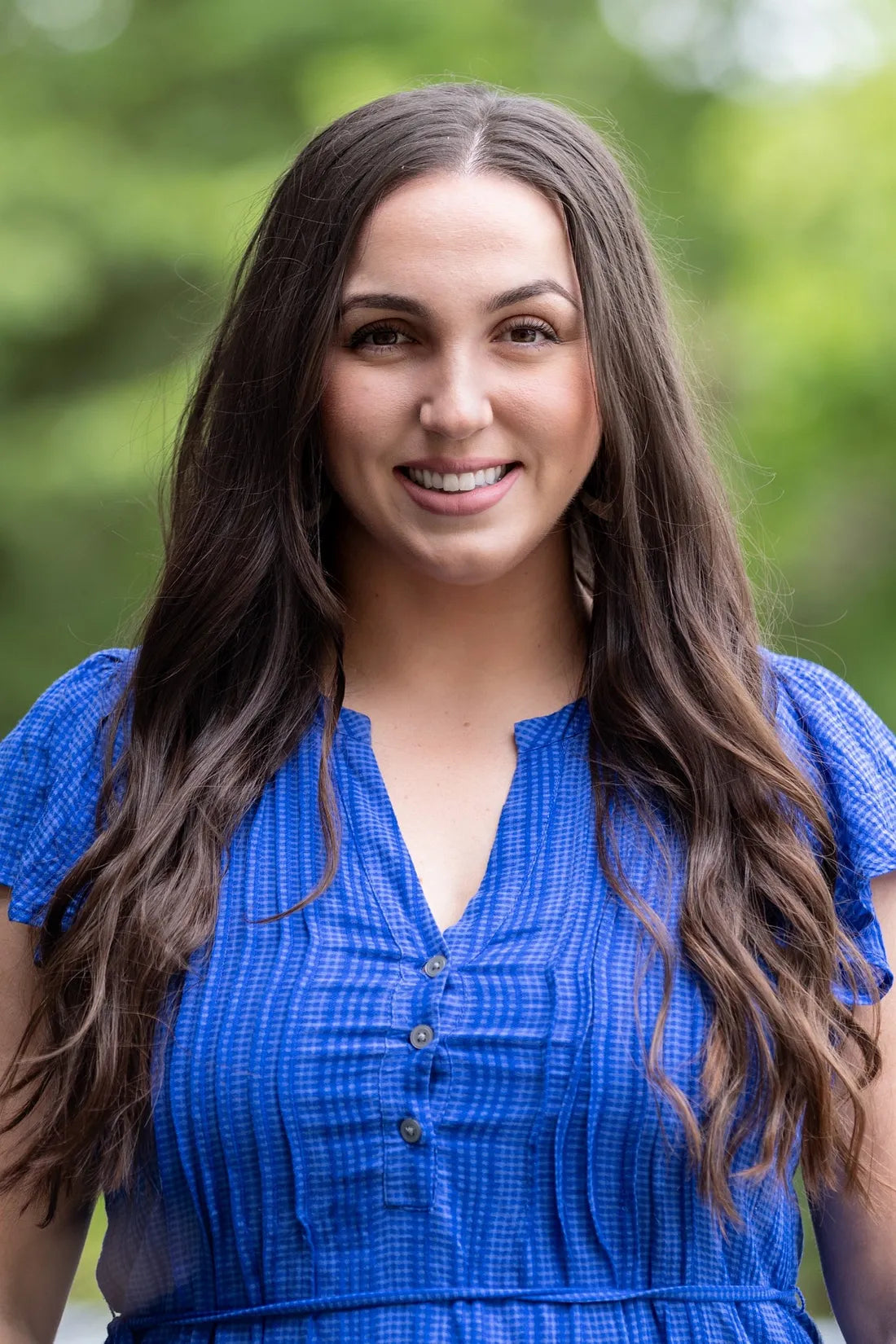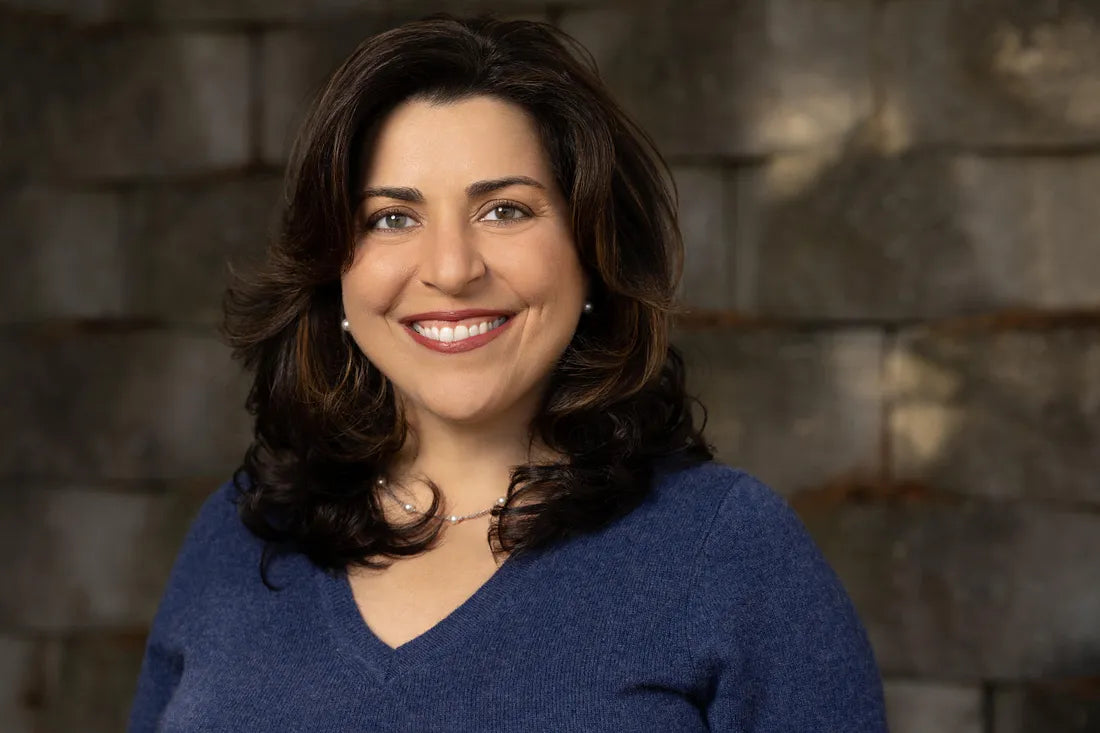Highly pigmented foods, such oranges, carrots and tomatoes have high levels of antioxidants, such as lutein and lycopene, which several studies have found to have a notable effect on the prevention of cancer.
Inan era dominated by pharmaceutical solutions, there is a rising consciousness about the incredible healing and preventive powers of food. As the age-old saying goes, “Let food be thy medicine, and medicine be thy food.” But how does this translate in today’s world? Can we really use nutrition as a potent tool against sickness and disease? How does one curate a diet that supports health, longevity, and wellness? In this series, we are talking to nutritionists, dietitians, medical professionals, holistic health experts, and anyone with authoritative knowledge on the subject. As a part of this series, we had the pleasure of interviewing Madeleine Putzi.
Madeleine is Registered-Dietitian Nutritionist, Certified Lactation Counselor and spokesperson from Pittsburgh, Pennsylvania. In 2020, Madeleine developed progressive autoimmune inflammatory arthritis that left her immobile for almost a year. After discovering just how many others were desperate for relief through dietary interventions with no idea where to begin, Madeleine decided to use her personal experience as her motivation for learning more about using a food-as-medicine approach to help heal systemic inflammation. She is a strong advocate for combining the benefits of conventional medicine with the healing properties of whole, nourishing foods to create individualized dietary approaches to aid in bringing chronic pain into remission.
Thank you so much for joining us in this interview series! Before we dive into the main focus of our interview, our readers would love to “get to know you” a bit better. Can you tell us a bit about your childhood backstory?
Iwas born and raised on Long Island, New York, where a lot of my family still resides. My parents, along with my brother and I moved to Northeastern Pennsylvania when I was in middle school, where I continued public school until I moved near Pittsburgh, Pennsylvania for my college years. I have been residing in Pittsburgh ever since.
What or who inspired you to pursue your career? We’d love to hear the story.
Although unintentional, my mom definitely played a large part in my inspiration to go to school for nutrition. Growing up, I was never the kid that brought the popular, sugar-sweetened processed snacks to school. My mom always chose foods that were much healthier than other typical items kids would bring; such as whole grains, fruit, and yogurt. Although I would be envious of the kids whose parents’ packed them cookies and chips, I realized when I was older how important it was to not fuel your body with those types of foods. Because I was not exposed to hyperpalatable choices on an everyday basis, I never developed that preference as I grew older — and I have never been a picky eater. As I got involved in sports in high school, my interest in nutrition continued, which led me to pursue an education in nutrition. I only looked into colleges that offered a nutrition degree, and once I chose, I never looked back.
It has been said that our mistakes can sometimes be our greatest teachers. Can you share a story about the funniest mistake you made when you were first starting? Can you tell us what lesson you learned from that?
Post-college, when I was first starting out in nutrition, I sought out entry-level jobs that I was overqualified for, due to fear of failure and the unknown. While that may have been the easiest choice, it was not the right one. I spent several years in a position where I felt I was not making a difference, even though I knew that I was beyond capable of doing greater things. After that realization, thankfully, I made several good decisions, which led me to becoming a Registered Dietitian-Nutritionist with a Masters degree. It may be scary, but it is so important to continually force yourself out of your comfort zone. You are never going to grow if you don’t take that first step. I still have so much room to grow. Today, I try to take every opportunity to do just that, by pushing myself out of my comfort zone.
You are a successful leader. Which three character traits do you think were most instrumental to your success? Can you please share a story or example for each?
- Self-reliance. These past few years, I was given several opportunities to advance myself, and I took all of them. I made a plan and I stuck to it. Having been financially independent throughout college, I had to find ways to make good financial decisions that made sense. After undergrad, I continued to make smart financial decisions and take advantage of opportunities that would benefit me later on in life, such as finding employment that offered tuition reimbursement.
- Resilience. After being diagnosed with an autoimmune disease in 2020, I found it really hard to see the light at the end of the tunnel. I did not know if and when I would be able to walk without pain again. As time passed, however, I made progress which eventually led to my remission.
- Empathy. Not only for others, but for myself. Allowing myself to go to therapy and work through the mental and physical struggles that I have had to manage over the years. Reaching into my heart to find a place of empathy for those who I felt may have wronged me in my life. Understanding that everyone is going through hardships and learning to accept myself and others for how they are presently; not for how they were previously, or how I want them to be now.
What are some of the most interesting or exciting projects you are working on now? How do you think that might help people?
This past year, I’ve been working a lot as a dietitian in the media, sharing nutrition quotes and tips to the public. More recently, I decided to start a blog to talk about my journey with inflammatory arthritis and to share evidenced-based nutrition tips surrounding how to help manage chronic inflammatory arthritic conditions with diet.
OK, thank you for all of that. Let’s now shift to the core focus of our interview about cultivating wellness through proper nutrition and diet. To begin, can you tell our readers a bit about why you are an authority on the topic of nutrition?
I am a Registered-Dietitian Nutritionist with a Masters degree in nutrition. I have spent a majority of the past decade working in the public health nutrition space, and learned a lot about how to communicate effectively. My favorite part about nutrition counseling is helping individuals from all different backgrounds create realistic, attainable health goals.
We all know that it’s important to eat more vegetables, eat less sugar, etc. But while we know it intellectually, it’s often difficult to put it into practice and make it a part of our daily habits. In your opinion what are the main blockages that prevent us from taking the information that we all know, and integrating it into our lives?
I think a lot of people put too much pressure on themselves for perfection. We live in a world where social media touts unrealistic body standards, and people are often left to feel like they are never enough. Many individuals are black and white thinkers. They think, if I “mess up” and “cheat” with my diet, I may as well give up. A lot of people do not understand that the best health outcomes come from balancing everything in moderation, and that the small, realistic steps eventually lead to the long-term sustainable health results.
From your professional perspective, do you believe that nutrition plays a pivotal role in supporting the body’s natural healing processes and overall well-being, particularly in cases of chronic diseases? We’re interested in hearing your insights on the connection between a holistic approach to diet and its benefits for individuals facing health challenges.
Absolutely. Both with disease prevention and disease management, nutrition is extremely important. There are various different foods and food compounds that have been found to make significant impacts on various health conditions, and research continues to find new connections every day.

Based on your research or experience could you share with us five examples of foods or dietary patterns that have demonstrated remarkable potential in preventing, reducing, or managing specific health conditions? If you can, it would be insightful if you could provide real-life examples of their curative properties.
1 . The Mediterranean diet has been the gold standard for health prevention and disease management for many years, and it’s popularity only increases over time. For example, studies have found that the mediterranean diet is correlated with providing beneficial effects for managing type 2 diabetes, such as reducing hemoglobin A1C levels, which may be in part due to the diet’s generally low glycemic index profile.
2 . Turmeric is a spice that has been shown to provide various health benefits, such as aiding in systemic inflammation. This is due to turmeric’s high levels of an antioxidant called curcumin, which is 2000 times more absorbable when piperine, the active component of black pepper, is added.
3 . Highly pigmented foods, such oranges, carrots and tomatoes have high levels of antioxidants, such as lutein and lycopene, which several studies have found to have a notable effect on the prevention of cancer.
4 . The ketogenic diet, which is defined as consuming high levels of fat (90%), and very-low carbohydrates, has been used since the 1920’s for non-surgical management of epilepsy for adults and children. The mechanism of the ketogenic diet mimics a fasted state and ketone bodies may present an anticonvulsant effect on the brain.
5 . According to research, people who live in the blue zones locations: Loma Linda, California, Nicoya, Costa Rica, Ikaria Greece, Sardinia, Italy, and Okinawa, Japan, reach the age of 100 at ten times greater rates than those of us in the United States. Many people think that their dietary strategies, which consist of eating 95% plant-based foods, is a large contributing factor to those rates of longevity.
Do experts generally agree that merely choosing healthy foods isn’t sufficient, but that understanding how to consume them is key to unlocking their full health benefits? (For example, skins on/off, or cooked/raw, or whole grain/refined grain) Could you provide advice on how to approach this and sidestep common errors or misconceptions?
Nutrition experts do have the knowledge about how to cook and prepare foods to preserve the most nutrients. While this message is definitely pushed, it is important to let people know that they don’t have to do a complete 360 in order to reap any benefits. For example, if someone does not usually eat a lot of fruit, but they prefer fruit without the skin, you will still benefit from vitamins and minerals and fiber, even if it is not as much as it would be leaving the skin on. This is similar to kids eating whole grain bread and not wanting the crust. Although the crust is beneficial, you will still benefit from the whole grains and nutrients in the bread, even if the crust is cut off. Compromise is essential to helping people with their health goals.
With the recent prominence of nutrition’s integration into healthcare, what’s your perspective on the collaborative approach between medical professionals, health coaches, and nutrition experts when it comes to delivering holistic patient care? Can you please explain?
I think collaborative care is super important. It is crucial that all health professionals know their scope of practice and refer out when they are prompted with managing patient conditions. Doctors should know when to refer to dietitians, and vice versa. The best patient outcomes come from group efforts to cover all bases. Non-licensed professionals, such as health coaches, definitely have a role, but that should be focused on supporting and encouraging the patient, not on providing any medical and/or nutrition advice.
It’s been suggested that using ‘food as medicine’ has the potential to reduce healthcare costs by preventing disease severity. However, there’s concern about the affordability of healthier food options. What solutions do you believe could make nutritious choices accessible to everyone, ensuring that food truly becomes a form of medicine for all?
Utilizing a food as medicine approach into your lifestyle does not have to be complicated. The foods you choose don’t have to be the most expensive, top-shelf items in the store. In fact, most products touted as being “superfoods” are really just being marketed to attract consumers. Low-cost food items that are a regular staple in my house include: tofu, sardines, flaxseed, canned beans, and whole fruits and vegetables, like squash and avocado. In fact, a lot of people purchase pre-cut fruits and vegetables, when in reality, they would get a much better bang for their buck just chopping up the whole fruit or vegetable. If convenience is a factor for your household, purchasing canned or frozen varieties of produce will still provide plenty of health benefits.
Everyone’s body is unique, and what works for one might not work for another. How does one navigate the vast array of nutritional advice available today to curate a diet tailored to individual needs, ensuring health and longevity?
If you are serious about obtaining a specific health goal, or are easily swayed by MLM’s or social media influencers, I recommend reaching out to a local dietitian. Dietitians work to curate health goals that are specific to you and nobody else. Every individual is different, and anything advertised as a quick fix or cure all is a red flag. If you are active on social media, know who to get your information from. If a plumber recommended that you get your leg amputated, would you do it? No. You go to your doctor for medical advice, so don’t go to Gwenyth Paltrow for diet advice.
As our understanding of the intricate link between food and health continues to evolve, we’re curious to know which emerging trends or breakthroughs in nutritional science excite you the most. How do you envision these advancements shaping the future of healthcare?
I am super excited to hear more about sustainability and nutrition. There is so much food insecurity in the world, and there is so much we can do about it. According to Feeding America, 119 billion pounds of food is wasted every single year in the United States. There are programs that I currently take advantage of to help minimize this impact, such as purchasing foods from Misfit’s Market and Imperfect Foods, which sell (and donate) gleaned and perfectly healthy funky-looking produce to consumers for a fraction of the price. These types of programs benefit everyone — the farmers, the consumers, and the earth.
How can we better educate the public about the medicinal properties of food, and what role do professionals like you play in this educational journey?
Nutrition experts need to keep pushing their knowledge to the public. The more we push nutrition experts into the media space, and misinformation out, the more people can benefit from our advice on a larger scale.
How can our readers further follow your work online?
You can read my upcoming blog on inflammatory disease and diet on my website, www.dietitianmadeleine.com, and follow me on my social media channels, @dietitanmadeleine.
Thank you for these really excellent insights, and we greatly appreciate the time you spent with this. We wish you continued success and good health!
About the Interviewer: Wanda Malhotra is a wellness entrepreneur, lifestyle journalist, and the CEO of Crunchy Mama Box, a mission-driven platform promoting conscious living. CMB empowers individuals with educational resources and vetted products to help them make informed choices. Passionate about social causes like environmental preservation and animal welfare, Wanda writes about clean beauty, wellness, nutrition, social impact and sustainability, simplifying wellness with curated resources. Join Wanda and the Crunchy Mama Box community in embracing a healthier, more sustainable lifestyle at CrunchyMamaBox.com.




